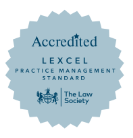Legal Expenses Insurance explained
Legal Expenses Insurance explained - why do you need it and how it works.
Legal Expenses Insurance may cover your legal costs if you want to bring legal action following an accident or incident that was not your fault.
The cost of taking legal action can be prohibitive. Without funds it is unlikely that you could afford to claim compensation if you were injured in an accident, unfairly dismissed from work or had a dispute with a tradesman. You may be able to if you have legal expenses insurance (LEI).
LEI is usually sold as an add-on to car or house insurance, generally for a small extra premium. Occasionally it’s included free. Legal Expenses Insurance can sometimes be included with a Credit Card that you hold or sometimes through your employment via a Trade Union.
It is also possible to buy standalone policies, although these are less common.
There is always a limit to how much can be claimed under the policy – usually £50,000 or £100,000.
Types of Legal Expenses Insurance.
There are two types of LEI – "Before The Event" and "After The Event".
1) "Before The Event" insurance.
Most LEI is "Before The Event" and offers cover for things that might happen. It usually includes the costs of solicitors’ fees, expert witnesses, court fees and any legal costs awarded to the other side.
For maximum cover it’s worth having both household and car legal expenses insurance (LEI).
Household LEI commonly covers personal injury, employment disputes (such as unfair dismissal), property disputes – disagreements over boundaries, for example – and disputes about goods or services bought or hired.
LEI with your car insurance generally covers the cost of pursuing losses because of accidents that weren't your fault, however they generally only tend to cover road traffic accidents involving you being a passenger or the driver. It usually covers claiming compensation for injury, damage to your car and uninsured losses such as your policy excess and car hire.
2) "After The Event" insurance.
"After The Event" insurance is taken out after the incident has happened, insuring you against losing the case. With "After The Event" insurance, the premium whilst purchased after the accident has happened, is usually not paid until the conclusion of the claim. The Insurance providers assess the risk at the outset and set the premium accordingly, if the claim is successful the premium is claimed direct from the Defendants in addition to your compensation. If the case fails due to liability the policy is self-insuring and is written off.
Exclusions.
All policies are different, but common exclusions include divorce or custody matters, defamation, disputes with contractors about major improvements to your house, and small claims (£5,000 or less in England and Wales, £3,000 in Scotland and Northern Ireland). If you are in doubt, it is always best to check with each provider individually as each policy and company are different.
As your Appointed Solicitor:-
We have a duty to ensure that you are protected and as a result we, on your behalf, have to make "enquiries"; firstly with yourself to ascertain whether you already have Legal Expenses Cover under a current home or motor policy or with a Trade Union or with your bank/credit card company, before we provide you with information regarding an "After The Event" insurance provider. This is because historically Defendants take umbrage if we, on your behalf, have failed to make the necessary enquiries and advise you to take out an “After The Event" Insurance Policy, thus incurring costs unnecessarily where you may already have such cover in place under a current policy.
It’s worth having LEI, but there are things you need to consider before you buy:
1. Are you already covered? Before buying LEI, check whether your car and house insurance policies include it. You may also get free legal advice if you are a member of some professional bodies or motoring organisations, or a trade union. If you fail to make the necessary checks before purchasing "After The Event" insurance and the Defendants become aware of the existence of a policy already in force they may decline to pay the After The Event Policy premium and this may make you personally liable for its costs.
2. Will you win? Be aware that potential Legal Insurers usually insist that there is a reasonable chance of your claim being successful before they will take it on, so you must be honest and accurate with your material facts surrounding your case.
3. Time limit: There is often a time limit for reporting a claim and if you fail to report the LEI will not cover you - 180 days after the incident took place isn't unusual, so if you already have Legal Expenses you must notify the providers as soon as it is practical to do so. This is not the time limit for pursuing claims but merely reporting to your insurer, therefore if you are outside the reporting period you can still pursue a claim.
4. Choice of solicitor: Most Insurers prefer you to use one of their panel solicitors and will only agree to indemnify you prior to proceedings being issued, although some will allow you to choose your own solicitor. In this case your solicitor will agree to act under the terms of the “Conditional Fee Agreement” and provided the case has sufficient merit, agree to accept the risk of incurring disbursements on the proviso that if the case is successful these can be claimed back from the Defendants in addition to their costs.
5. Offers to settle: Usually you must accept any reasonable offer to settle. If you choose to continue with the case against advice, you may have to bear any subsequent costs as a result of not taking the advice of your solicitor.
For immediate, compassionate and free advice contact our Personal Injury Team who are ready to help you. 01392 209209.
Roger Henderson - 01392 209218.
Email: roger.henderson@rundlewalker.com









